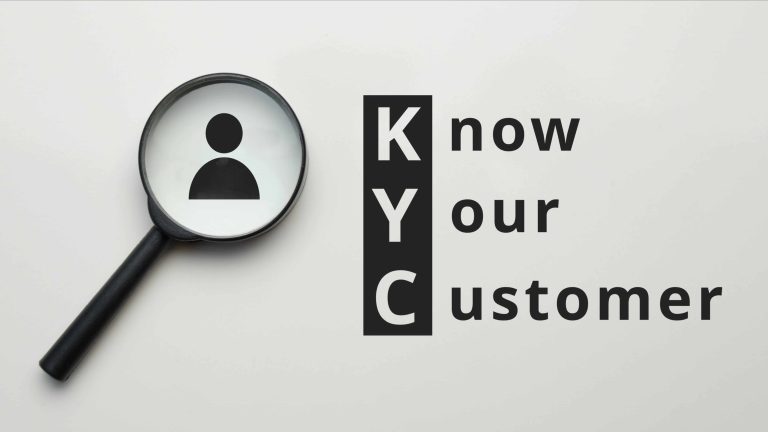In the rapidly evolving world of cryptocurrency, security, and regulatory compliance are essential for traders and exchanges. One of the most prominent requirements imposed on crypto exchanges today is KYC—short for “Know Your Customer.” KYC is a verification process designed to confirm users’ identities, ensuring that financial transactions are conducted securely and in compliance with local and global regulations. But why do crypto exchanges require KYC, and what role does it play in the broader crypto ecosystem?
What is KYC?
KYC, or Know Your Customer, is a regulatory process that financial institutions—including crypto exchanges—use to verify the identity of their customers. KYC aims to prevent illicit activities such as money laundering, fraud, and terrorist financing by ensuring that individuals using financial platforms are who they claim to be. The KYC process typically requires users to provide personal information such as their name, address, date of birth, and identification documents (e.g., a passport or driver’s license).
Some exchanges may also request additional documentation, such as proof of residence or a selfie for facial verification. Once verified, users can access the full features of the exchange, including deposits, trades, and withdrawals.
Why Do Crypto Exchanges Require KYC?
While the cryptocurrency space is often associated with decentralized and anonymous transactions, the reality is that many governments and regulatory bodies now require exchanges to implement KYC procedures. It is important to note that this is due in part to:
Compliance with Regulations
One of the main reasons crypto exchanges enforce KYC is to comply with Anti-Money Laundering (AML) and Counter-Terrorism Financing (CTF) regulations. These laws are designed to prevent illegal financial activities by ensuring that the funds circulating within the system are not tied to criminal enterprises. KYC enables exchanges to trace the identities of their users, making it more difficult for bad actors to misuse the platform.
Preventing Fraud and Protecting Users
KYC provides an additional layer of security for both exchanges and their users. By verifying the identities of customers, exchanges reduce the risk of fraudulent activities, such as identity theft, account takeovers, or unauthorized transactions. In this sense, KYC plays a critical role in safeguarding the integrity of the platform, giving users peace of mind that they are trading in a secure environment.
Building Trust and Credibility
In the cryptocurrency industry, trust is paramount. Exchanges that implement KYC are generally viewed as more transparent and credible. By adhering to regulatory standards and providing secure trading environments, these exchanges attract users who value a legitimate and well-regulated platform. In contrast, exchanges that do not implement KYC may struggle to build trust with their users and could face legal repercussions.
Facilitating Law Enforcement Cooperation
KYC allows exchanges to work closely with law enforcement agencies when needed. In cases of criminal investigations or breaches of financial regulations, exchanges with proper KYC systems in place can provide relevant information to authorities, aiding in the investigation and prosecution of illicit activities.
KYC in Practice: How It Works
When a user registers with a cryptocurrency exchange that requires KYC, they typically go through the following steps:
- Submission of Personal Information
Users provide their basic information such as full name, address, and date of birth. - Uploading Identification Documents
Users are asked to upload a government-issued ID, such as a passport or driver’s license. Some exchanges may also require a photo of the user holding their ID to ensure the identity matches the person creating the account. - Verification of Information
The exchange uses specialized software and, in some cases, manual review to verify the authenticity of the submitted documents and ensure that the person is not on any international sanctions or watch lists.
Once the verification is complete, users gain access to the platform’s services, often with increased transaction limits. This process may take from a few minutes to several days, depending on the exchange and the complexity of the verification.
Privacy and User Concerns
Despite its benefits, KYC has raised concerns within the crypto community, particularly regarding user privacy. Cryptocurrency enthusiasts often value the decentralized and pseudonymous nature of digital assets, and some are wary of sharing personal information with exchanges. However, most reputable exchanges take steps to protect user data. This includes implementing encryption, secure storage systems, and strict privacy policies to prevent unauthorized access to sensitive information.
Moreover, exchanges must comply with data protection regulations such as the General Data Protection Regulation (GDPR) in Europe, which enforces strict guidelines on how personal data is stored and used.
Conclusion
KYC has become an essential component of the modern cryptocurrency exchange ecosystem. While it may seem at odds with the decentralized nature of crypto, KYC plays a vital role in ensuring compliance with regulatory frameworks, protecting users from fraud, and fostering trust in trading platforms. For crypto exchanges, enforcing KYC is not just about following the rules—it’s about creating a safer, more transparent environment for all participants in the cryptocurrency space.
As the regulatory landscape continues to evolve, KYC will likely remain a cornerstone of crypto exchange operations, balancing the need for security and compliance with the unique ethos of digital assets.
Follow Our Official Social Channels:
